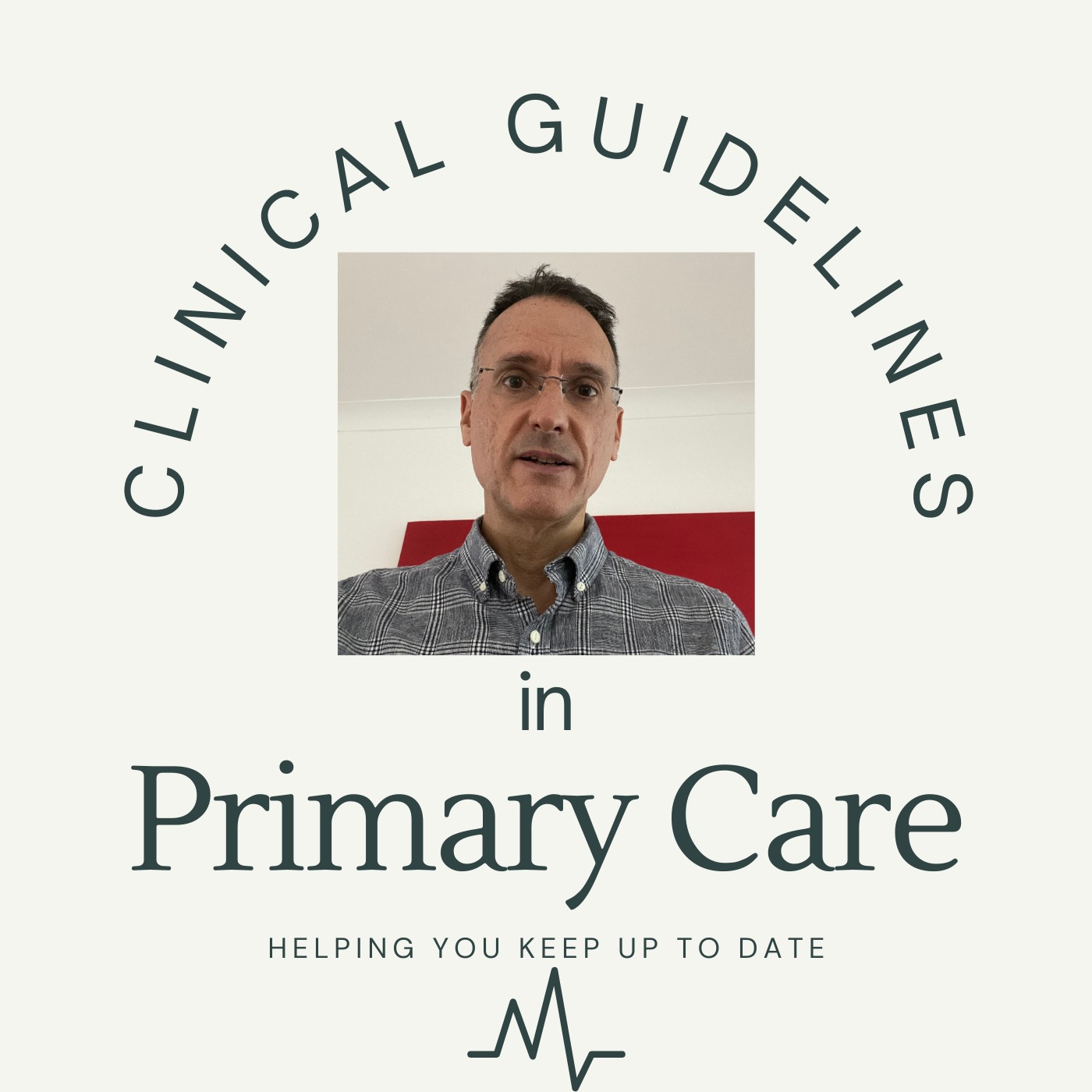Podcast - Management of male LUTS: a NICE perspective
Description
This episode makes reference to guidelines produced by the “National Institute for Health and Care Excellence” in the UK, also referred to as “NICE”. Please note that the content on this channel reflects my professional interpretation/summary of the guidance and that I am in no way affiliated with, employed by or funded/sponsored by NICE.
My name is Fernando Florido and I am a General Practitioner in the United Kingdom. In this episode I will go through the NICE guidance on the management of lower urinary tract symptoms in men.
I will summarise the guidance from a Primary Care perspective only.
I am not giving medical advice; this video is intended for health care professionals; it is only my interpretation of the guidelines and you must use your clinical judgement.
There is a podcast version of this and other videos that you can access here:
Primary Care guidelines podcast:
· Redcircle: https://redcircle.com/shows/primary-care-guidelines
· Spotify: https://open.spotify.com/show/5BmqS0Ol16oQ7Kr1WYzupK
· Apple podcasts: https://podcasts.apple.com/gb/podcast/primary-care-guidelines/id1608821148
There is a YouTube version of this and other videos that you can access here:
The Practical GP YouTube Channel: https://youtube.com/@practicalgp?si=ecJGF5QCuMLQ6hrk
The full clinical guideline CG97 on lower urinary tract symptoms in men: management can be found here:
· https://www.nice.org.uk/guidance/cg97
The International Prostatism Symptom Score calculator can be found here:
· https://www.uptodate.com/contents/calculator-international-prostatism-symptom-score-ipss
Intro / outro music: Track: Halfway Through — Broke In Summer [Audio Library Release]
Music provided by Audio Library Plus
Watch: https://youtu.be/aBGk6aJM3IU
Free Download / Stream: https://alplus.io/halfway-through
Transcript
Hello and welcome, I am Fernando, a GP in the UK. Today, we will go through the NICE guidance on the management of lower urinary tract symptoms in men, which I have summarised from a Primary Care perspective.
So, let’s jump into it.
And to appreciate fully the importance of this subject, let’s have a look at this anonymous poem:
“As man draws near the common goal
Can anything be sadder
Than he who, master of his soul
Is servant to his bladder‟
And, of course, we know that the prevalence and severity of male lower urinary tract symptoms, also known as LUTS, increase with age and although transurethral resection of the prostate is often effective, about a quarter of men have poor post-surgical outcomes and some failures can be attributed to an incorrect initial diagnosis.
So, let’s start by talking about the conditions that can cause LUTS in men.
And in order to get the correct diagnosis, we should remember the ancient Chinese proverb that says that the “bladder is the mirror of the soul‟ and therefore LUTS can result from not only bladder dysfunction or prostatic pathology but also from a number of other causes, e.g., metabolic, hormonal, cardiac, respiratory, etc. And therefore, effective therapy depends on the accurate diagnosis of the underlying problem.
Although, the most common cause is benign prostate enlargement (BPE), which obstructs the bladder outlet, the term LUTS is an umbrella term introduced to dispel the perception that male urinary symptoms are simply caused by prostate problems.
Because other conditions, for example, detrusor muscle problems, prostatitis, UTIs, prostate cancer and neurological disease, can also cause LUTS.
We also need to be aware of the 3 stages of the bladder cycle, which are:
· Storage - during which filling of the bladder occurs
· Voiding - during which the bladder actively expels its contents and
· Post micturition - immediately after voiding when the bladder returns to storage function.
And as a result, LUTS comprise three d
More Episodes
The video version of this podcast can be found here:
https://youtu.be/0yQ_Be-xU6o
This video makes reference to guidelines produced by the "National Institute for Health and Care Excellence" in the UK, also referred to as "NICE". Please note that the content on this channel reflects my...
Published 05/20/24
Published 05/20/24
The video version of this podcast can be found here:
https://youtu.be/Pi7cBcov2fI
This video makes reference to guidelines produced by the "National Institute for Health and Care Excellence" in the UK, also referred to as "NICE". Please note that the content on this channel reflects my...
Published 05/14/24


